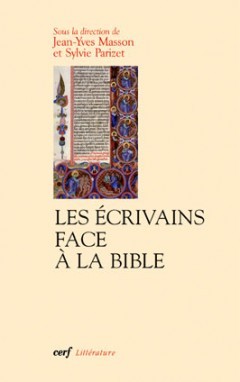Plus qu'aucune autre œuvre, le texte biblique est reçu à travers un " filtre ", celui des diverses traditions religieuses qui en ont assuré la diffusion. Mais comment l'imaginaire des écrivains fonctionne-t-il, lorsqu'il les conduit à faire appel à des réminiscences, conscientes ou inconscientes, de la Bible ? Jusqu'à quel point les poèmes, pièces ou romans ainsi créés sont-ils marqués par des siècles de commentaires exégétiques ? Le parcours proposé nous invite à examiner les œuvres d'écrivains de diverses confessions, à travers toute l'Europe, mais aussi dans les Caraïbes ou en Amérique du Sud. Outre de célèbres " phares " du XIXe siècle (Blake, Pouchkine, Rimbaud, Dickens,) et du XXe siècle (Claudel, Thomas Mann, Nelly Sachs, Paul Celan), ce livre s'intéresse aussi à la création plus contemporaine, avec des études sur quelques auteurs majeurs d'aujourd'hui comme l'Argentin Juan Gelman ou le romancier israélien d'origine russe Leonid Guirchovitch. Grâce à la richesse des œuvres abordées, c'est la nature des enjeux propres à la littérature moderne qui se trouve ainsi examinée sous un jour nouveau. -- More than any other work, we read the Bible through a "filter', that of the various religious traditions that ensured its diffusion. But, how does the imagination of writers function when it leads them to summon up reminiscences, whether conscious or unconscious, of the Bible? To what extent are the resulting poems, plays or novels marked by centuries of exegetic commentaries? This text invites us to explore the works of writers of various faiths, from all over Europe as well as the West Indies and South America. Besides those famous luminaries of the 19th century (Blake, Pushkin, Rimbaud, Dickens,) and the 20th (Claudel, Thomas Mann, Nelly Sachs, Paul Celan), this book also takes an interest in more contemporary writing with studies of major authors of today such as the Argentinean Juan Gelman and the Israeli novelist of Russian origin, Leonid Guirchovitch. Thanks to the wealth of works dealt with here, the very nature of the issues inherent to modern literature is examined in a new light.




